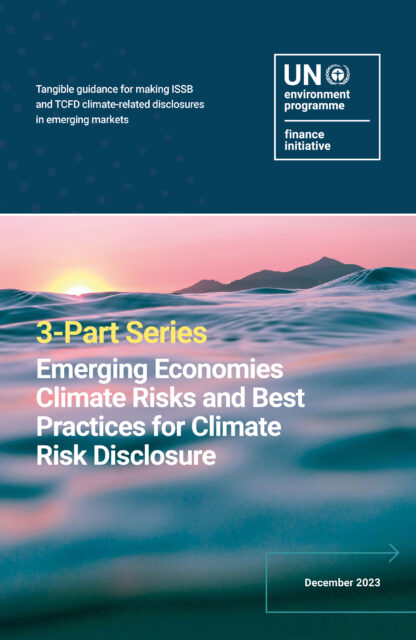The dire impacts of climate change and the associated global challenges that we are facing have led to an increased focus on climate-related financial disclosures in sustainable finance practices to help organisations identify, manage and mitigate the adverse effects of climate change. In response, some countries have enforced mandatory climate disclosure and international climate disclosure standards have rapidly evolved. Following the recommendations of the Task Force on Climate-Related Financial Disclosures (TCFD) in 2017, the International Financial Reporting Standards (IFRS) has recently issued the much-anticipated sustainability disclosure standards, referred to as the ISSB standards, to ensure consistent and comparable climate-related information in financial reports.
With specific socio-economic characteristics, regulatory landscapes, and physical/transition climate risks, emerging markets are exposed to different climate-related financial risks. This three-part report offers comprehensive guidance and best practice examples for financial institutions and policymakers in emerging markets on the four pillars of the TCFD recommendations, and on the ISSB standards. It aims to strengthen organisations’ climate risk management practices, facilitate informed decision-making, and ultimately contribute to the transition to low-carbon, resilient and inclusive economies.
Designed for organisations at the start of their sustainability journey, the report provides a comprehensive overview of climate risks and opportunities in emerging economies and practical guidance to integrate climate considerations into financial reporting processes. It also supports policymakers in creating an enabling environment for the adoption of sustainable finance practices and facilitating the adoption of standardised approaches for climate risk management. Finally, the report showcases concrete case studies and looks into climate disclosure regulatory landscapes in emerging economies.
Download the report chapters you are interested in below:



